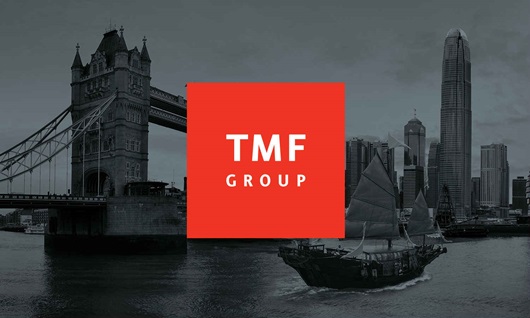Financial and accounting challenges in the wholesale sector
Wholesale sector may be defined as the area of economic activity that constitutes a bridge between the activity of producers and manufacturers and that of retail outlets. This sector is principally focused on wholesale trade which consists in purchasing large quantities of products, sorting and storing them, searching for recipients, products resale, and providing a number of services for suppliers, such as logistics. Due to large scale and very dynamic business processes, this sector poses a significant challenge for financial and accounting services.
O&M: How is the wholesale sector perceived in the context of financial and accounting services?
 Marek Binio: Principal characteristics of the wholesale sector from the financial and accounting service perspective are large volumes of accounting operations, oftentimes over dozens or hundreds of thousands of purchase or sale documents and their high repeatability. Accounting records of such large volumes would not be possible without using highly advanced information systems that allow to flexibly integrate clients’ business systems with financial and accounting systems. In this area, IT systems of the subject in charge of keeping clients’ records are suited to the clients’ business needs, and not the other way round.
Marek Binio: Principal characteristics of the wholesale sector from the financial and accounting service perspective are large volumes of accounting operations, oftentimes over dozens or hundreds of thousands of purchase or sale documents and their high repeatability. Accounting records of such large volumes would not be possible without using highly advanced information systems that allow to flexibly integrate clients’ business systems with financial and accounting systems. In this area, IT systems of the subject in charge of keeping clients’ records are suited to the clients’ business needs, and not the other way round.
We may also encounter cooperation models where financial and accounting services are provided using clients’ systems. This is a highly recommended alternative in the situations where clients invest in IT solutions that ensure flexibility in cases where their business needs change rapidly. At the same time, it should be stressed that in the great majority of cases services related to storing and selling processes are carried out by the clients themselves using their own IT tools. Another characteristic of this sector is the automation of numerous accounting processes, such as bank statements settlement processes, factoring, or trade credit management. Financial and accounting services also involve taking into account numerous regulations and legal requirements, for example, those related to implementation of Good Distribution Practices policies.
O&M: What are the expectations of the wholesale sector towards financial and accounting services providers?
MB: The expectations of the wholesale sector may be divided into 2 groups: standard and specific. Standard expectations include high quality of financial and accounting services expressed through the agreed KPI indicators, such as fully and flawlessly processed documents as well as timeliness measured in terms of lead time (process execution time) standard deviation. Moreover, the clients expect a quick access to the processed data, constant automation of processes and lowering service costs, quick implementation of changes occurring in legal and economic environment and their translation into financial and accounting services. The second group of expectations are analytical and advisory services, such as analysis of the clients’ ongoing settlements with contractors (including retail chains), control over the state of trade creditors, analysis of the state of financial liabilities and liquidity, analysis of loss in the economic value of products, working capital management, etc. Those expectations complement services performed in an individualized manner in the areas of law, finances, and taxes.
O&M: How will challenges and expectations of the wholesale sector impact financial and accounting services?
MB: Wholesale sector corporations operate in a highly competitive environment that requires a constant pursuit of solutions which increase the value of sales revenue and profit margin while lowering operational costs. Due to the above, they need to use very advanced solutions regarding the following areas: process management starting from placing orders to payment execution, inventory management (including economic deliveries, reduction of inventory and losses, and distribution errors reduction), reduction of order service costs, increasing profit margin through efficient analysis and optimum decision-making. All of the above processes require high quality and timeliness of financial and accounting services. In the era of quick technological advances, extensive information exchange, and strong competitiveness, wholesale sector enterprises must also face new challenges within the scope of the proposed business cooperation models. First of all, entrepreneurs must redefine and demonstrate to the producers and manufacturers what value services provided by the wholesale sector have for them without it losing its intermediary status as a result. It may be carried out by performing new services, such as VMI (Vendor Managed Inventory), direct distribution, drop shipping (sales model based on transferring products shipping process from a shop owner to a selected vendor), as well as repackaging, labeling, or consignment warehouses management services. The incorporation of those services into the entrepreneurs’ selection of products triggers the need to introduce appropriate changes in keeping financial and accounting records of those clients.
The space where trading takes place also changes as transactions concluded on the Internet, which skip traditional forms of issuing and sending financial documents, are constantly increasing. Another challenge faced by the wholesale sector pose multidimensional databases, so called big data, which require continuous and complete feeding with high quality data from numerous information systems, including financial and accounting systems, in order to identify hidden benefits of scale and potential. Finally, ground-breaking changes in logistic processes area, such as using drones and cars without drivers, and recently also unmanned cargo ships, may lay the grounds for redefining offered services. Therefore, wholesale sector is headed towards expanding its offer to include highly-specialized and advanced technological services, which will also change the manner in which financial and accounting
services are provided to corporations.






